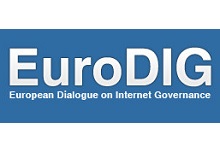Advanced literacy – basic education for the digital age
19 Jun 2019 16:30h - 18:00h
Event report
[Read more session reports and live updates from the EuroDig 2019]
The interactive session, moderated and led by Mr Ansgar Koene (Professor, University of Nottingham), addressed teaching basic information on algorithmic systems that are increasingly affecting the way in which users interact with the world online.
Koene went around the room with a couple of boxes and distributed decks of cards, developed as part of the UNBias Research Project in the UK, created as a tool to engage young people aged 13 to 17 years. Koene talked to the youth in the UK about their experiences in interacting with online systems and their concerns about how algorithmic information has been mediated by algorithms. He wanted to show that they do not have control over algorithmic manipulation and potential ways in which algorithmic filters could be biased.
Based on their interactions with students, hearing their concerns about how teachers have little material or have no clear knowledge for communicating how algorithms work, Koene and other researchers developed a toolkit to communicate the basic understanding of how algorithmic ecosystems work. The toolkit is not about the technical details of how to programme or how deep learning works. It is about the fundamental questions around why personal data is collected in order to do algorithmic content moderation, what kind of values go into that. How an algorithmic system that runs on mathematical equations is not a neutral tool and there are values built into this.
The deck of cards distributed to the audience during the session contained a glossary card that explained the basics of what an algorithm is, a rights card explaining individuals’ rights concerning their personal data, a value card showing how algorithms are not neutral, a process card that explained the different steps of an algorithm reasoning, a data card explaining the concept of data, a factor card, and an exercise card. The audience was split into groups and got to play with the cards.
Koene chose cards as a medium because of their low cost. He hopes that schools and teachers will use the game to improve digital literacy among students.
Koene stressed that on the Internet, information is a stumbling block and, therefore, the ability to find information is a core issue. In that sense, good filtering is what determines good service. However, filters have downsides such as the lack of control users have on the information they get access to online. Koene argued that a huge number of users of social media platforms were completely unaware of the fact that algorithms play an important part in the information they got to see. According to Koene, this lack of understanding is concerning. His project could be useful to increase awareness among students on how algorithms work.
By Ana Maria Corrêa
Related topics
Related event

